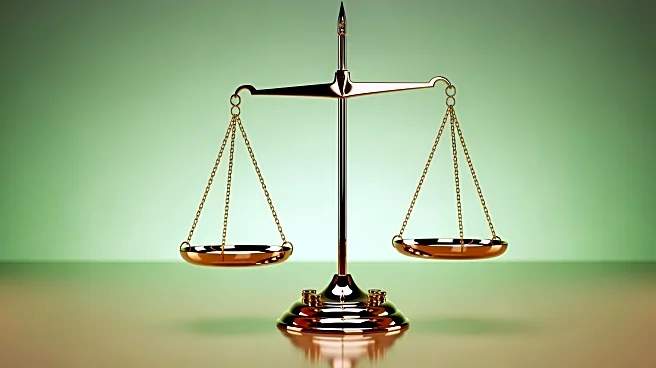What's Happening?
A new initiative called the Global Ethical Stocktake has been launched by the President of Brazil, Lula da Silva, and the United Nations Secretary-General, António Guterres. This initiative aims to incorporate
ethical considerations into climate negotiations, an aspect previously overlooked. The launch comes amid criticism from former UN Secretary-General Ban Ki-moon and other influential figures who have labeled the current climate policy process as inadequate. The initiative is part of the preparations for COP30, where the Brazilian government faces scrutiny over its environmental policies, including the construction of a highway through the Amazon rainforest, which contradicts its pledge to protect the environment.
Why It's Important?
The integration of ethical considerations into climate negotiations is crucial as it addresses the moral dimensions of climate action, ensuring that policies are not only effective but also just. This initiative could influence global climate policies, potentially leading to more comprehensive and equitable solutions. Brazil's actions, such as the highway construction, highlight the tension between economic development and environmental protection, a challenge faced by many countries. The outcome of COP30 could set a precedent for future climate summits, impacting global efforts to combat climate change.
What's Next?
COP30 is expected to be a pivotal moment for climate negotiations, with Brazil's environmental policies under intense scrutiny. The success of the Global Ethical Stocktake initiative could lead to more ethical and inclusive climate policies. Stakeholders, including indigenous groups and environmental activists, are likely to continue their protests, demanding more accountability and action from the Brazilian government. The international community will be watching closely to see if Brazil can balance its economic interests with its environmental responsibilities.
Beyond the Headlines
The ethical dimension of climate negotiations could lead to long-term shifts in how countries approach climate action, emphasizing justice and equity. This could result in more support for vulnerable communities affected by climate change, ensuring that they are not left behind in the transition to a sustainable future.









